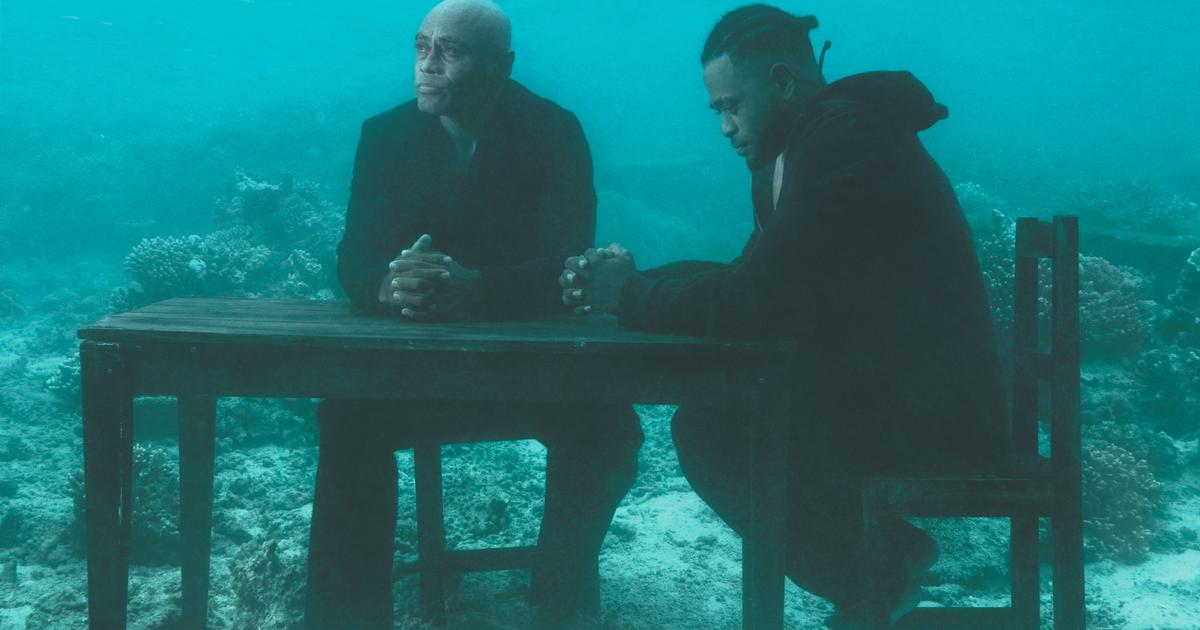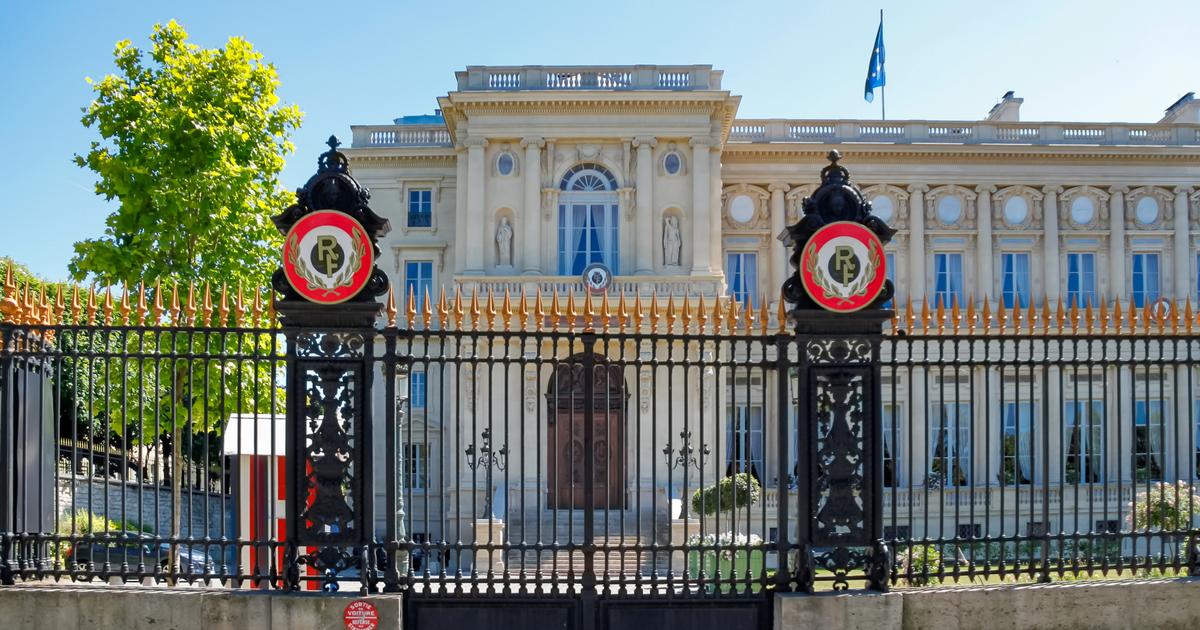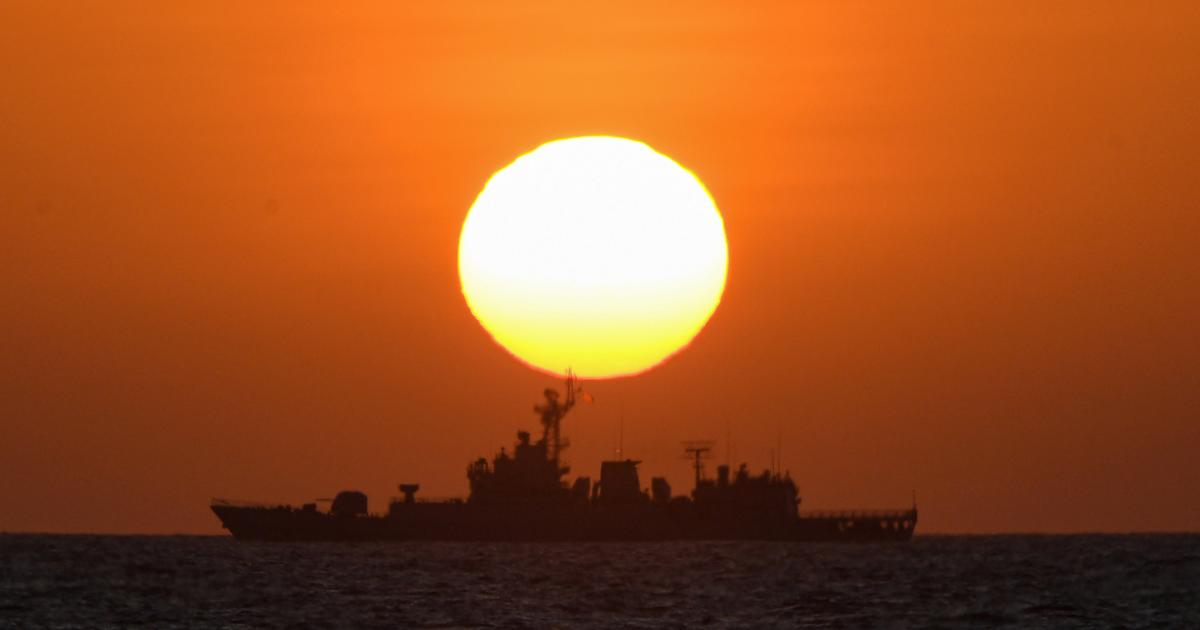China and the USA are on a confrontational course in the Indo-Pacific and are courting allies.
Fiji has now apparently chosen a side.
Munich/Suva – Just a few years ago, world politics was made in the North Atlantic, today the focus is increasingly on the Indo-Pacific.
In the vast region where much of the world's population lives, China and the US are vying for influence.
Both try to forge new alliances and lead old ones into the future.
The world powers keep focusing on countries that very few are likely to find on the map.
Such as Fiji, a country made up of more than 300 islands around 2,500 kilometers off the east coast of Australia.
There are turbulent weeks behind Fiji.
The country elected a new parliament in mid-December, and neither Prime Minister Frank Voreqe Bainimarama's party nor that of his challenger Sitiveni Rabuka were able to secure a majority.
In the chronically unstable country - both Bainimarama and Rabuka had seized power in the past and were later confirmed in democratic elections - the signs were pointing to conflict.
Fiji has had a government since Christmas, however. Rabuka's People's Alliance Party was able to form a coalition with a smaller party and thus replace the Bainimarama government after 16 years.
Barely in office, the new prime minister caused an international uproar.
In an interview with Australian television channel ABC, Rabuka railed against Australia, New Zealand, Great Britain and the USA.
He accused them of still looking at Fiji through colonial glasses and of not treating the country as equals.
Fiji was a British Crown Colony until 1970.
Traditional security agreements with these states would have to be reconsidered, Rabuka said.
China and Fiji: are the good relations now history?
Beijing, on the other hand, with which the government in Suva has had good relations for years, treats Fiji impartially, stressed Rabuka.
“China came with a blank sheet of paper.
They only saw us as a development partner," Rabuka said in the ABC interview.
But now Fiji has suddenly made a U-turn: As the Reuters news agency reports, citing local media, Rabuka last Friday canceled an agreement with China on the training and exchange of police officers.
Beijing is unlikely to like his surprising justification at all: "Our democratic system and our judicial system are different," he said to China.
And in the direction of Australia and New Zealand he added: "So we will fall back on those who have similar systems to ours."
China and Fiji signed a police cooperation agreement in 2011 under the old government.
Another agreement followed three years later on defense issues such as border controls, equipment and training.
In the same year, Xi Jinping became the first Chinese president to pay a state visit to tiny Fiji, declaring that "all countries, regardless of their size, strength and wealth" should "treat each other equally and help each other sincerely."
These warm words met with goodwill from Prime Minister Bainimarama, who has now been voted out, especially as China is investing heavily in the region.
His successor Rabuka apparently has other priorities.
A large part of Fiji's indigenous population is very poor, Sanjay Ramesh of the University of Sydney told
The Diplomat
magazine .
Rabuka has now realized that "democracy is the best way to improve the living conditions of indigenous Fijians".
A surprising finding, after all, Rabuka – known at the time by the name “Rambo” – staged two coups against the government in the mid-1980s.
In the meantime, however, Rabuka has distanced himself from his overthrow, and in 1992 he became Prime Minister of Fiji in a democratic election for the first time.
China's foreign minister tries a charm offensive - and fails
Both China and the Western powers are interested in Fiji and the other island states in the region because of their geopolitical importance.
Only a few million people live on the many thousands of islands that stretch from the Philippine Sea to the east coast of Australia and towards Hawaii.
But the area is huge.
Whoever is in charge here controls a key region that is likely to become increasingly important in the future if China and the US maintain their confrontational course.
Especially since several US territories are in the region, such as American Samoa, just a few hundred kilometers east of Fiji.
"The Pacific is big enough for the two great powers China and the USA," Xi Jinping said during a visit to Washington in 2015.
At the same time, however, Beijing is arming itself and already maintains the second largest navy in the world.
"Building up a large naval force is part of the great strategic task of achieving China's great rebirth and renewal," a confident Xi proclaimed in 2017.
Last year, Wang Yi, then Beijing's foreign minister and now the top diplomat in the Chinese Communist Party's Politburo, launched a charm offensive in the Pacific region.
Within just ten days he visited eight Pacific island states and at the second "meeting of foreign ministers of China and the Pacific island states" promoted an agreement with his country that, according to media reports, should, among other things, ensure Beijing better access to mineral resources in the region.
In return, China promised a free trade agreement.
However, the agreement ultimately failed, partly due to resistance from Micronesia.
Its prime minister accused the Chinese of wanting to expand their power in the region and threatening regional security.
China's security deal with the Solomon Islands is causing concern
Elsewhere, Beijing has had more success.
Last spring, China signed a security agreement with the Solomon Islands, an island nation east of Papua New Guinea.
The agreement, the actually secret text of which was leaked, allows, among other things, that China's navy may station in the Solomon Islands.
The government's rapprochement with Beijing's communists in the Solomon Islands' capital of Honiara caused concern in Washington.
The US government had neglected the region for years.
The reaction: Washington now wants to open an embassy in the Solomon Islands.
In the summer, US Vice President Kamala Harris said in a video message to officials in the region, "The history and future of the Pacific Islands and the United States are inextricably linked." received the diplomatic attention and support they deserved.
"That's why I'm here today, to tell you directly: We will change that." Australia is also becoming increasingly involved in the region and financed, among other things, a new headquarters for the local armed forces in Fiji.
Some in the region are critical of the new competition between China, the US and their allies.
There are great concerns about being drawn into a new major conflict.
For many island states, however, the real threat is not rising military budgets, but rising sea levels.
Moses K. Mosé, EU ambassador for the Solomon Islands, recently explained in an interview with our editors that climate change is simply "a matter of survival" for his country and many other island states in the Pacific.














